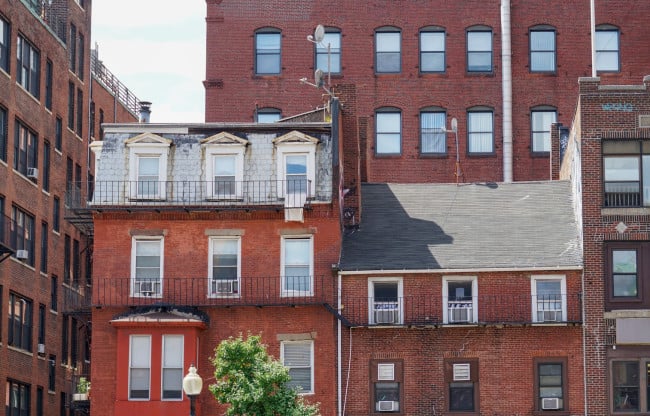What's an in-law apartment, and how is it different from a regular apartment?

Spencer Means/Flickr and iStock
If you're in the market for a townhouse, especially in the outer boroughs, you've likely come across the terms "in-law apartment" or "mother-in-law apartment." But what does that mean? How is an in-law apartment different from a regular old apartment?
As is probably pretty obvious, the term in-law apartment comes from the idea of keeping in-laws or a mother-in-law, close—but not too close—in a separate apartment that is part of your house. An in-law apartment can also be in a separate structure on the same lot, such as above a garage, or a freestanding structure of its own. We realize that these latter definitions are for the most part outside the realm of what's available in New York.
You'll often find basement or garden-level apartments referred to as "in-law apartments," but these apartments can be located on any floor of a building.
"An in-law apartment has its own separate kitchen and bathroom and windows—all the qualifying attributes of a normal apartment—but it's typically smaller. And it has its own entrance," says Citi Habitats broker Vittorio Faricelli, a native of Williamsburg, where these kinds of setups are common.
Faricelli says he sees in-law apartments most frequently in the Brooklyn neighborhoods of Williamsburg, Greenpoint, and Park Slope, and in Ridgewood and Middle Village in Queens.
Are there rules defining what constitutes an in-law apartment? Not really, according to the attorneys we spoke to.
"I don’t think there is a legal definition," says Adam Stone of The Stone Law Firm. "It's not a legal term. People use it generically to mean 'an apartment carved out of an existing home or a stand-alone dwelling built on the homeowners’ property.'"
There is, however, some research that you should do to figure out if the apartment is legal, and legal to rent out to someone other than your in-laws.
"Whether it's legal is not according to definition. It's whether its use conforms to the certificate of occupancy for the building," says Kara Rakowski, an attorney at the law firm Belkin Burden Goldman. This actually leads back to the etymology of the term in-law apartment, because it's legal to have a family member (in-law, adult child, or sibling) live in an additional apartment in a house that is formally designated as a one-family, but unless a building is certified as a two-family, it's illegal to rent it out to a non-family member.
This is an important distinction if you're banking on generating some (legal) income with the rental apartment in the house you're buying. Changing the certificate of occupancy is not typically an easy process, as it can require getting a variance in zoning, and as Cynthia Keskinkay at Douglas Elliman points out, the existing apartment might not meet the city's regulations.
"Just because [an apartment] has a kitchen and bath doesn't mean the city would grant a certificate of occupancy," she says.
For more on how this works, see our guide to sniffing out illegal apartments here.


























